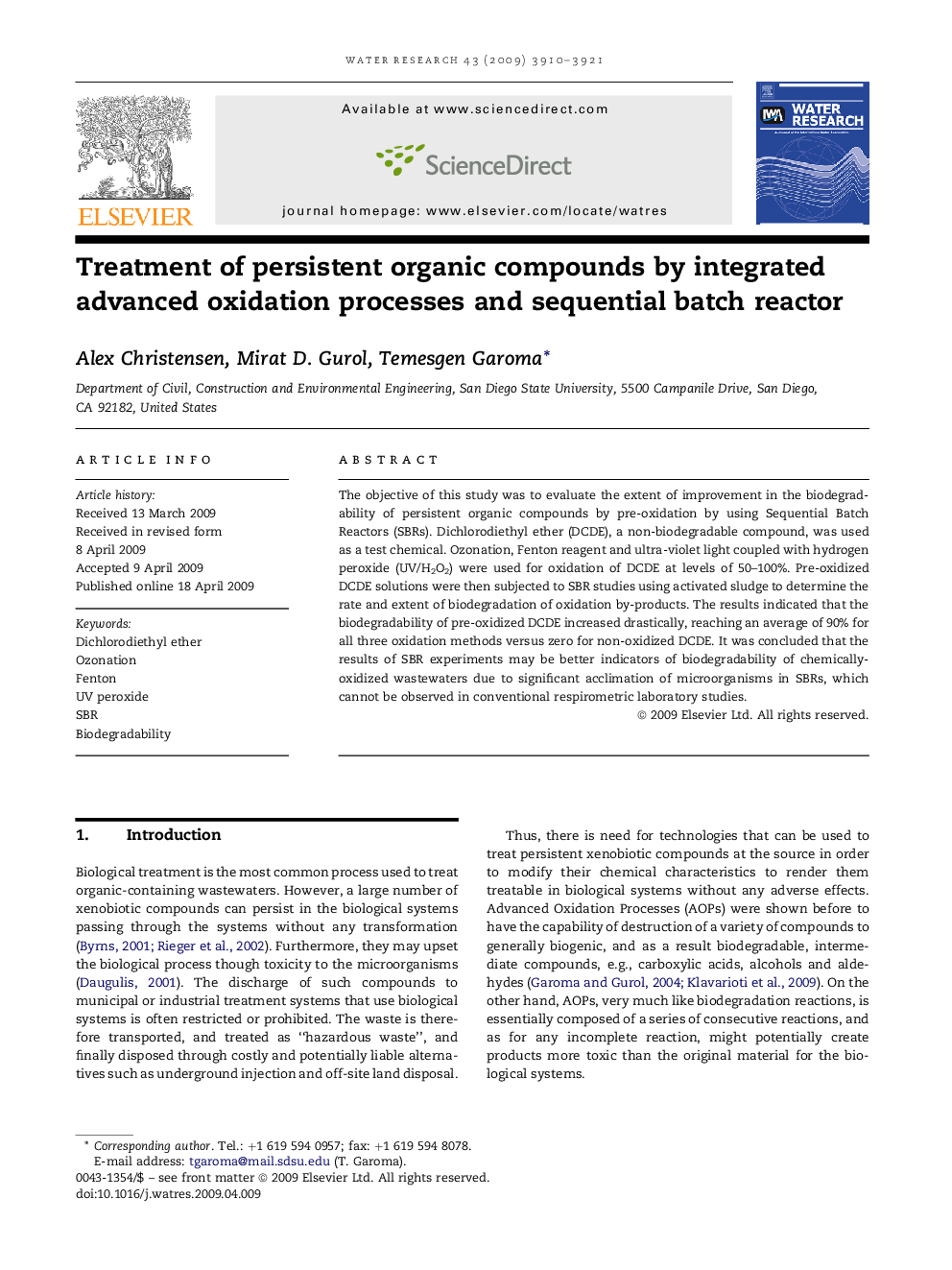| کد مقاله | کد نشریه | سال انتشار | مقاله انگلیسی | نسخه تمام متن |
|---|---|---|---|---|
| 4484498 | 1316923 | 2009 | 12 صفحه PDF | دانلود رایگان |

The objective of this study was to evaluate the extent of improvement in the biodegradability of persistent organic compounds by pre-oxidation by using Sequential Batch Reactors (SBRs). Dichlorodiethyl ether (DCDE), a non-biodegradable compound, was used as a test chemical. Ozonation, Fenton reagent and ultra-violet light coupled with hydrogen peroxide (UV/H2O2) were used for oxidation of DCDE at levels of 50–100%. Pre-oxidized DCDE solutions were then subjected to SBR studies using activated sludge to determine the rate and extent of biodegradation of oxidation by-products. The results indicated that the biodegradability of pre-oxidized DCDE increased drastically, reaching an average of 90% for all three oxidation methods versus zero for non-oxidized DCDE. It was concluded that the results of SBR experiments may be better indicators of biodegradability of chemically-oxidized wastewaters due to significant acclimation of microorganisms in SBRs, which cannot be observed in conventional respirometric laboratory studies.
Journal: Water Research - Volume 43, Issue 16, September 2009, Pages 3910–3921